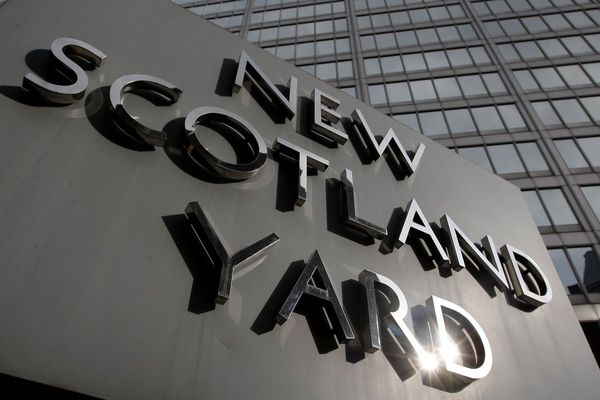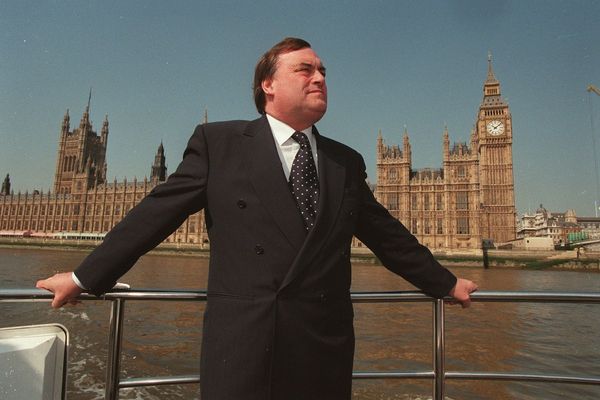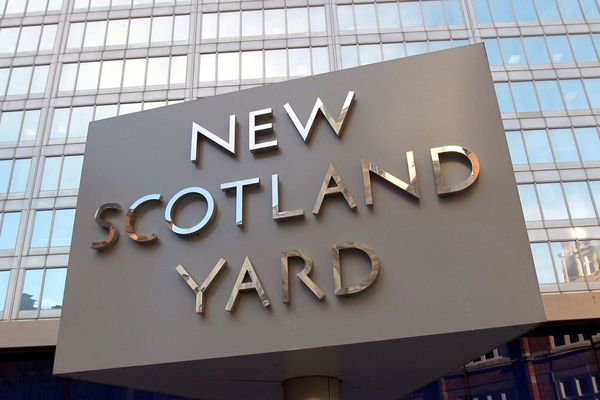
Well, in the end, the question occurs: what was that all about? As Israel moves remorselessly towards an annihilation of half of Gaza, as a mildly leftish government resoundingly falls in New Zealand, the referendum for recognition and a First Nations Voice to Parliament has failed absolutely.
The ABC called it at 7.20pm, before Western Australia had even finished voting. The only jurisdiction to vote Yes was the ACT, which feels like a booby prize. It was never even close. It was a night without succour or relief for those who had campaigned for years, and put their hopes into it. With early votes and postal votes to come in, the Poll Bludger projected a final result of Yes 40%, No 60%, and it may go lower.
Recriminations might now begin on how the Yes campaign was run, but this is largely irrelevant. The Yes campaign was indeed pretty terrible, but there seems very little likelihood that a first-rate campaign would have made a difference. Possibly Victoria, with its 46-54 result, could have been turned to Yes, but even NSW, with its 41-59, was beyond recovery, as were Tasmania and South Australia.
Queensland and WA were out of the question. This was a rejection of the Voice proposal at its core, and as such a rejection of the principle that underpinned it: that there was a significant division between First Nations people and other Australians, that should be recognised in the establishment of new institutions.
The rejection of the Voice proposal went pretty exactly as you’d expect. The Yes 40% will almost certainly be shown to be made up of majority votes among the inner- and middle-urban knowledge class of the major cities, those under 25, First Nations people, some non-European migrant groups and sections of the upper-middle-middle class in teal seats.
As Bob Birrell and Katherine Betts noted, tertiary education was an overwhelming predictor for a Yes vote. However the Voice came about, it quickly became a knowledge-class cause, a distinctive expression of how the world was and should be. Once it entered the referendum process, requiring double majorities, the Voice became a white, or non-Indigenous, object.
As a test of where national feeling about Indigenous/non-Indigenous relations and rights lay, the Voice was a terrible one. It proposed a complex and highly specific object, emerging out of the blue for most Australians, with fuzzy details at best, and a strange remit, of giving advice but having no power. It was part of reconciliation and recognition — whatever that was, many asked — but it was also practical, about Closing the Gap. No simple picture of what it was, was provided.
The Yes camp seemed to be pursuing a sort of “small target” strategy, trying to avoid the process getting bogged down in questions of detail of the proposed remedy to our nation’s plight. But that assumed that most Australians thought our nation had a plight, some unaddressed absence around which we were wrapped, defining us. Most Australians didn’t, and so the Voice seemed an answer to a question the world wasn’t asking.
Hence, the core of the electorate split along lines of knowledge and its absence, and universal morality, rather than specific group loyalties. That’s the tertiary educated in a nutshell, especially those on the humanities side. Non-European migrants have a basic solidarity around questions of colonialism, and the sham of colour-blind “equality”. And gen Z, tertiary-educated or not, has been formed in a radically networked world, in which position/identity itself is fluid. Such groups shared the same assumptions that the Voice proposal worked off: that oppression and disadvantage are structural, embedded in history, often invisible in action.
For the remainder of the voting public, this conception of a continuing process doesn’t operate nearly as strongly. Who Indigenous people are, where they live, how they live, are subject to all sorts of half-conceived notions. Few people are now unaware of dispossession and massacre. How accurately they calibrate that, or have some picture of how it occurred, is another question.
Protection acts, reserves, missions, the White Australia policy — how much do many know of it? Very little, apart from the Stolen Generations, one suspects. And how dominant a role do they believe such events play in current disadvantage?
The Yes case couldn’t convince any great slice of the “middle” 30% of voters that creating a Voice for Indigenous people was a necessary step in the nation’s journey, a completion as much for all “the others”, as for Indigenous people themselves.
But for this middle group, voting No was not about the passionate defence of a distinct set of values, or way of life, against an onslaught of change. It was for the most part, one suspects, because Yes hadn’t made the case that Indigenous people should be a special category of citizen, for reasons arising from our history, with special institutions, however anodyne they might be.
That is where the great divide between Yes and No lay — over the legitimacy of this complex manoeuvre whereby the path to full equality passed through the permanent recognition of specialness, and the creation of a rather unwieldy new institution to both express that and achieve it. The way the numbers look suggests a crucial asymmetry: No got almost all the undecideds and waverers. The Yes case was pretty much wholly composed of those committed to it, an end-point of what one watched across six months, the relentless grinding-down of the Yes response to polls.
With those numbers, Indigenous Australians have no partners in reconciliation on the other side — not because the narrative of arrival, dispossession and oppression is being actively denied by a pro-western story that has any great support, but simply because this group of the non-indigenous simply do not acknowledge that there is now, in this period, a significant difference at all.
They do not see themselves as on “the other side” of a struggle, and hence there is no defining struggle as such, no agon. Whatever racism and disadvantage people will acknowledge as currently existing, they do not see it as necessarily expressing the “colonialist” narrative that the Voice requires, in order to be legitimate.
If that’s the case, then this resounding No vote marks the end of the period known as “reconciliation”, one that began in the late ’80s, whose arc rose through the ’90s and 2000s and which began to fall in the 2010s. That curve upwards had some nasty stuff beneath, such as the intervention and its continuation. But however inadequately, “reconciliation” still seemed a real and living notion. If it no longer does, it is not because we have returned to conflict, but because the “other side” to the Indigenous demand — a surviving notion of Anglo destiny and invested meaning — has dissolved in the last decade or so.
What’s dissolved it? What hasn’t? What was once a bounded continent nation-state, with a few TV and radio channels and a dozen newspapers, is now a society connected to everything, everywhere, all at once, its conceptual borders thinning. What was once an Anglo society with a growing migrant supplement is now, in its major cities, a post-Anglo space with migrant notions of arrival, autonomy and self-creation at its dynamic centre. The No vote thus contained both a section of people who felt they were passionately defending something against an onslaught, and those who lived in a space where there was nothing to defend. But also nothing to change.
Thus, though many non-European migrants voted Yes, the historical fact of their steady, decades-long arrival has renewed the vitality of the notion, strong in Anglo culture for decades, that the meaning of this country is as a place where one can arrive and remake oneself, build a life. The stronger that gets, the more it must undermine the claims of Indigenous specialness, no matter how much migrants would not want it to.
Mass voluntary migration, to be possible at all, must not only achieve the recognition that it is possible to make your life over again from a suitcase, but it also pushes it to the centre of the Australian experience — the creation of something from nothing at all, the excitement of new existence. While the content of Indigenous culture has moved to the centre of Australian life over the past decade or so, the form it required — the cultural centrality of inherited place — has been, well, displaced in a way that has deprived Indigenous people of the heroic narrative it needed to win a referendum. That Australia is a country of newness, of no ground, of lightness, of largely individualised trajectories through time, and of such a love of novelty that many white Melburnians will say they live in “Naarm”. What could be more ungrounded than that?
Should one be correct about that deep shift in culture, really a shift in being, on this continent, then the struggle for First Nations recognition — as it has been conducted — is largely concluded. The continent is redefining itself. Having dethroned Anglo suprematism, it has now passed by Indigenous recognition, on the way to something else.
Labor state governments may continue treaty processes with multiple groups. Big capital-T treaty appears out of the question. There seems a sudden, general feeling, that the need to do this, the old “fierce urgency of now” has departed. The same goes for any truth and reconciliation commission — unless Labor still has some perverse courage. But one presumes that the Albanese government will now back away from Indigenous causes very, very rapidly, and become a government of the suburban masses (some of whom are Indigenous, of course), aligning itself with the many, not the few.
What Indigenous leaderships will do remains to be seen. But they may have time out of the spotlight to think about it, as the country and the world moves on, and the bombs rain on another Indigenous people half a world away.







